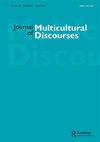What is next for de-westernizing communication studies?
IF 1.6
Q3 COMMUNICATION
引用次数: 6
Abstract
De-westernization of communication studies is a diffused, multi-pronged intellectual movement, that has produced vibrant literature in recent years from around the world. De-westernization is both a layered argument as well as a political indictment of western-centric academic knowledge. It calls western scholarship to be aware of its blindspots and to open to non-western studies. It denounces inequalities in globalized communication studies, the persistent hegemony and universalist aspirations of western perspectives, the one-way global flow of academic ideas, and the limited inroads of non-western scholarship in the global North (Demeter 2020). De-westernization interrogates the provenance and the positionality of academic knowledge. Addressing these issues should be second nature for any scholar. Where do ideas come from? From what position do we produce knowledge? What are the biases of my work? What are the strengths and limitations of research and intellectual traditions? These questions, however, are rarely discussed in public, as if it were bad etiquette, akin to talking about religion or politics at the dinner table during the holidays. This is a major omission for a simple reason: Academic knowledge is produced in specific settings, shaped by multiple factors – from resources to political environments. Therefore, revealing biases is necessary to assess what’s missed and misinterpreted – what gets lost when communication studies are anchored in a particular set of intellectual traditions and experiences. In this regard, de-westernization overlaps with a related movement that also foregrounds issues of positionality: the critique of racialized and gendered structures of academic scholarship. Both movements tear off the pretense of abstract, aseptic, neutral science. They scrutinize how specific hierarchies and histories of power are woven into the production of academic knowledge, which in turn, reinforce inequalities and suppress or make alternative perspectives invisible. They reflect a move from the margins that questions dominant structures and demands a leveled field. De-westernization is also a political movement. It urges an intellectual shift – moving the gravitational center of scholarship. It is not simply a geographical turn; it is a call to curiosity about and engagement with ideas produced in various corners of the world. This demands the recognition of neglected intellectual traditions underpinning communication theories outside the west. De-westernization is another name for cosmopolitan scholarship (Waisbord 2016; Badr and Ganter 2020) in our globalized times – a necessary corrective and alternative to arguments with universalities aspirations generally传播学去西方化的下一步是什么?
传播学的去西方化是一场广泛的、多管齐下的知识运动,近年来在世界各地产生了充满活力的文学。去西方化既是一种分层的争论,也是对西方中心学术知识的政治控诉。它呼吁西方学术界意识到自己的盲点,并向非西方研究开放。它谴责全球化传播研究中的不平等、西方观点的持续霸权和普遍主义愿望、学术思想的单向全球流动以及非西方学术在全球北方的有限进展(Demeter 2020)。去西方化对学术知识的来源和地位提出了质疑。解决这些问题应该是任何学者的第二天性。想法从哪里来?我们从什么位置产生知识?我的工作有哪些偏见?研究和知识传统的优势和局限性是什么?然而,这些问题很少在公共场合讨论,就好像这是一种糟糕的礼仪,类似于在节日的餐桌上谈论宗教或政治。这是一个重大遗漏,原因很简单:学术知识是在特定环境中产生的,由多种因素形成——从资源到政治环境。因此,揭示偏见对于评估遗漏和误解是必要的——当沟通研究植根于一组特定的知识传统和经验时,会丢失什么。在这方面,去西方化与一场相关的运动重叠,这场运动也突出了立场问题:对学术学术的种族化和性别化结构的批判。这两种运动都撕掉了抽象、无菌、中立科学的伪装。他们仔细研究了特定的等级制度和权力历史是如何融入学术知识的生产中的,而这反过来又加剧了不平等,压制或使其他观点隐形。它们反映了边缘地带的转变,对主导结构提出了质疑,并要求一个公平的领域。去西方化也是一场政治运动。它推动了知识的转变——移动学术的重心。这不仅仅是地理上的转折;这是对世界各个角落产生的想法的好奇和参与的呼唤。这就要求承认被忽视的知识传统,这些传统支撑着西方以外的传播理论。去西方化是国际化学术的另一个名称(Waisbord 2016;Badr和Ganter 2020),在我们全球化的时代——这是一种必要的纠正和替代具有普遍普遍性愿望的论点的方法
本文章由计算机程序翻译,如有差异,请以英文原文为准。
求助全文
约1分钟内获得全文
求助全文

 求助内容:
求助内容: 应助结果提醒方式:
应助结果提醒方式:


